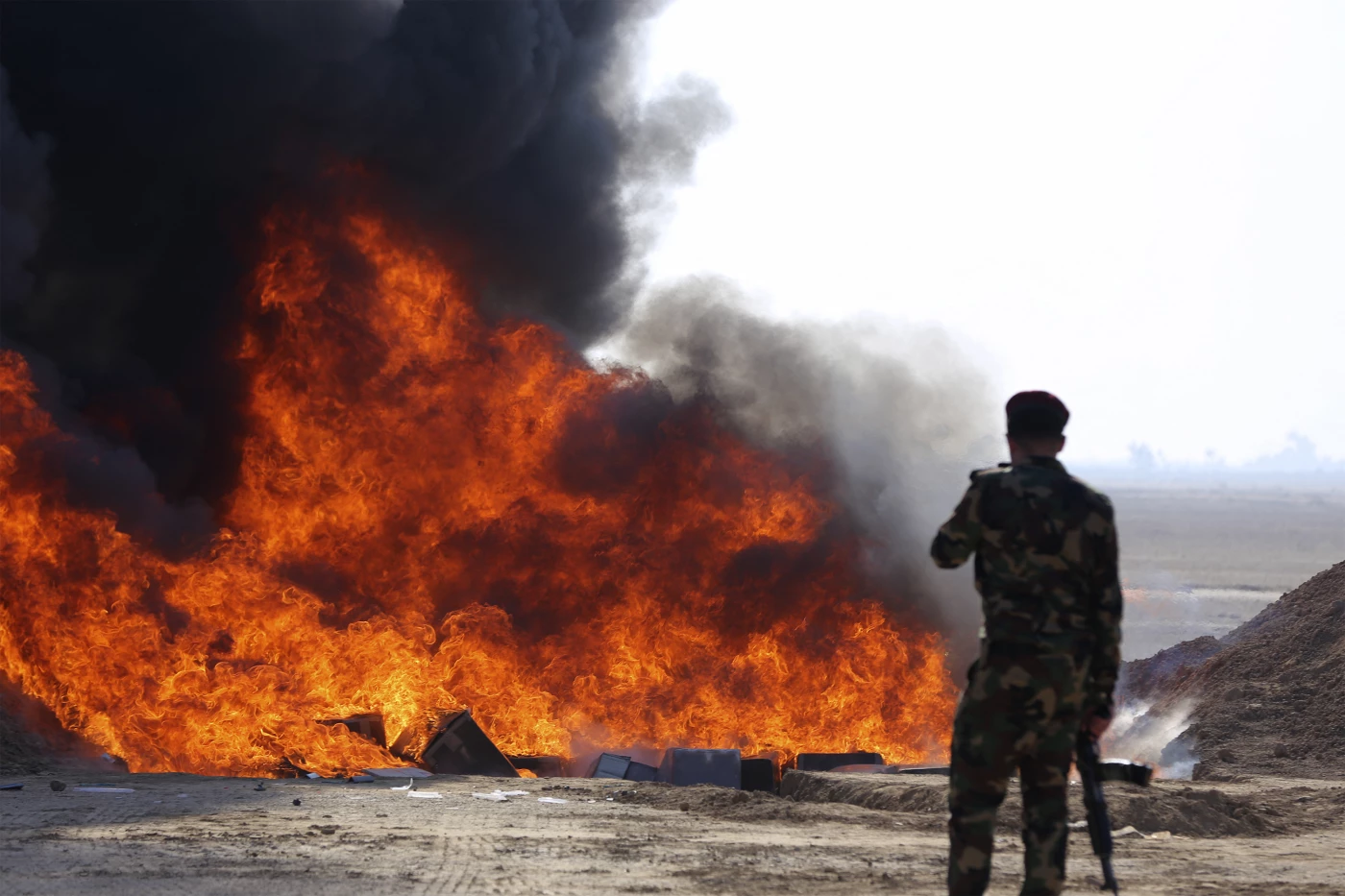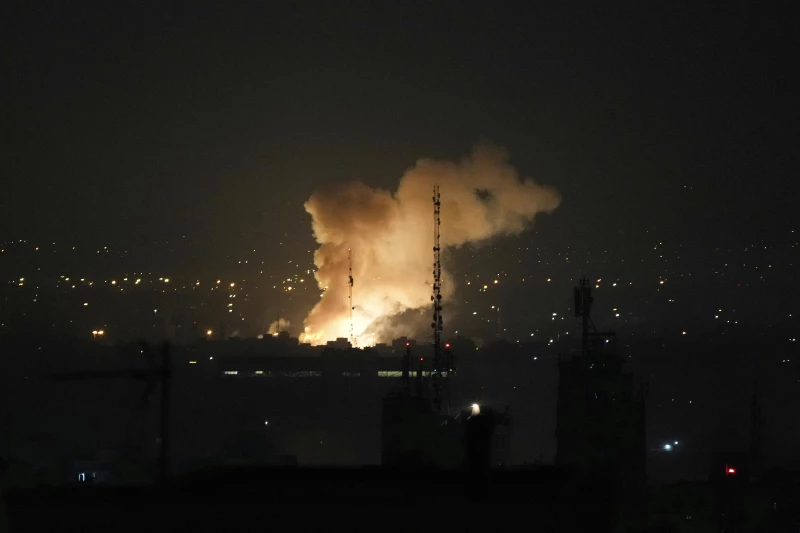ERBIL, Kurdistan Region of Iraq - The Iraqi health ministry announced Wednesday the destruction and incineration of over 340 kilograms of narcotics at Baghdad's forensic department.
“The Ministry of Health announced the destruction of a new batch of narcotics and psychotropic substances, the total weight of which amounted to (340,685) kilograms of narcotics,” read the statement, adding that the substances were burned on Tuesday but did not specify when they were seized.
It added that they also incinerated “100,000 tablets of psychotropic substances (Cidavid containing the narcotic tramadol)…in the forensic medicine department.”
The process of destroying narcotics involves examining, sorting, and burning the materials, followed by testing their inactivity after burning to ensure they have completely lost their narcotic potency at temperatures reaching 1100 ° C.
Wednesday’s campaign comes just three days after the Iraqi government announced it had arrested over 3,000 suspected drug-traffickers and seized more than two tons of narcotics during the first quarter of this year.
Iraq, with its extensive borders with Syria, Iran, Saudi Arabia, and Kuwait, has evolved from a transit route into a significant drug consumption market.
Despite consecutive government pledges to combat drug-related issues in the country and Prime Minister Mohammed Shia’ al-Sudani's order to establish rehabilitation centers across all Iraqi provinces, the country's infrastructure remains too weak to handle the rapid increase in drug use.
Despite imposing severe penalties, Iraq continues to face an escalating drug problem that has intensified since the US invasion in 2003.
Iraqi security forces have made significant strides; however, the country faces substantial challenges, such as insufficient rehabilitation centers and overcrowded prisons, leading to high relapse rates among former inmates.
Iraq's stringent narcotics laws, which impose death or life sentences for drug-related offenses, are a response to the severity of the crisis but have yet to fully curb the increasing drug use and trafficking.


 Facebook
Facebook
 LinkedIn
LinkedIn
 Telegram
Telegram
 X
X



